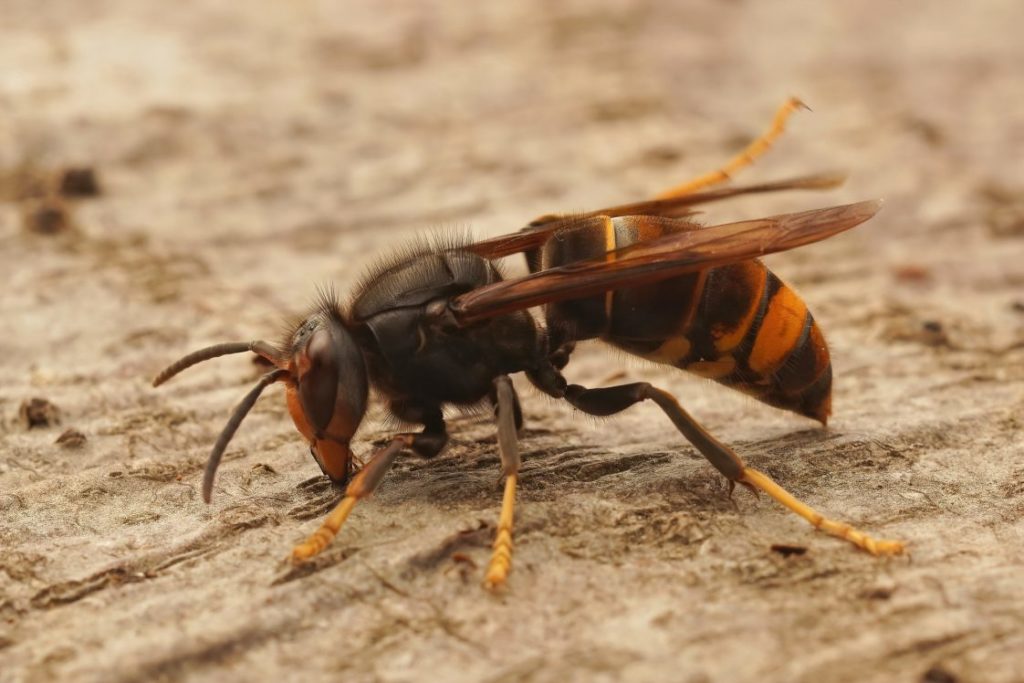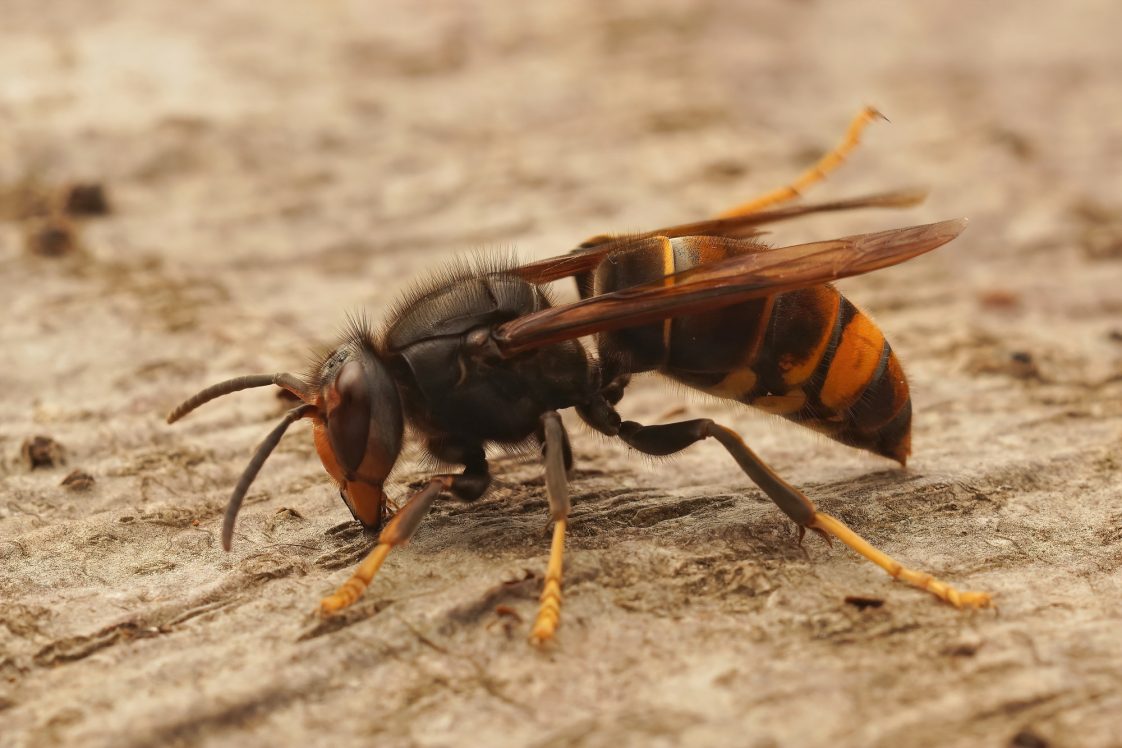By Clint Thompson
The presence of the yellow-legged hornet in Georgia has specialty crop producers in the Southeast on high alert.

Their presence is a threat to the region’s honey bee population and subsequent crops that rely on honey bees for pollination, explains Katelyn Kesheimer, Auburn University assistant professor and Extension specialist.

“Similar to what people were calling the murder hornet or the northern giant hornet is its common name, the yellow-legged hornet is a voracious predator of honey bees. They will devour entire hives. Even if they don’t eat all of them, they’re really going to mess up their day to the point where they’re not producing honey or doing the pollination services that they usually do,” Kesheimer said. “It’s certainly devastating for the beekeeping industry’s honey production but also the multi-billion dollar agricultural industry that relies on honey bees as pollinators. If it were to get established and hurt the honey bee population, agriculturists could really be hurting with this one.”
According to the Georgia Department of Agriculture (GDA), a beekeeper in Savannah, Georgia, found the hornet earlier this month and reported it to the GDA. The U.S. Department of Agriculture Animal and Plant Health Inspection Service confirmed the University of Georgia’s identification of the hornet.
“Georgians play an important role helping GDA identify unwanted, non-native pests, and I want to thank the beekeeper who reported his sighting to us, as well as our partners at the University of Georgia and USDA’s Animal & Plant Health Inspection Service for working swiftly to confirm its identity,” said Agriculture Commissioner Tyler Harper. “Our experienced team of professionals will continue to assess the situation and are working directly with USDA APHIS and UGA to trap, track, and eradicate the yellow-legged Hornet in Georgia.”
The cicada killer wasp, eastern yellow jacket and baldfaced hornet are some of the imposters of this invasive species. Yellow-legged hornets are natural predators that can wipe out colonies by focusing on their concentrated source of food until it is entirely consumed. They live communally and have the same life cycle as native hornets and wasps.
“This is the first finding in the U.S., so is this is pretty big for beekeepers, probably in the Southeast, but I would imagine pretty widespread in the eastern U.S.,” Kesheimer said. “Similar to the northern giant hornet, there being more of them out there is not out of the realm of possibility or if there’s a breeding population that we don’t find, there’s plenty of food for them to feed on. If left unchecked, it could certainly be a problem and cross into invasive territory and become established like it did in Europe.”
The best defense against invasive species is education and identification. To help properly identify suspected species, a sample should be photographed or submitted to local Extension offices.
For more information on this invasive species, read Yellow-Legged Hornets in the Southeast on the Alabama Extension website, www.aces.edu.










